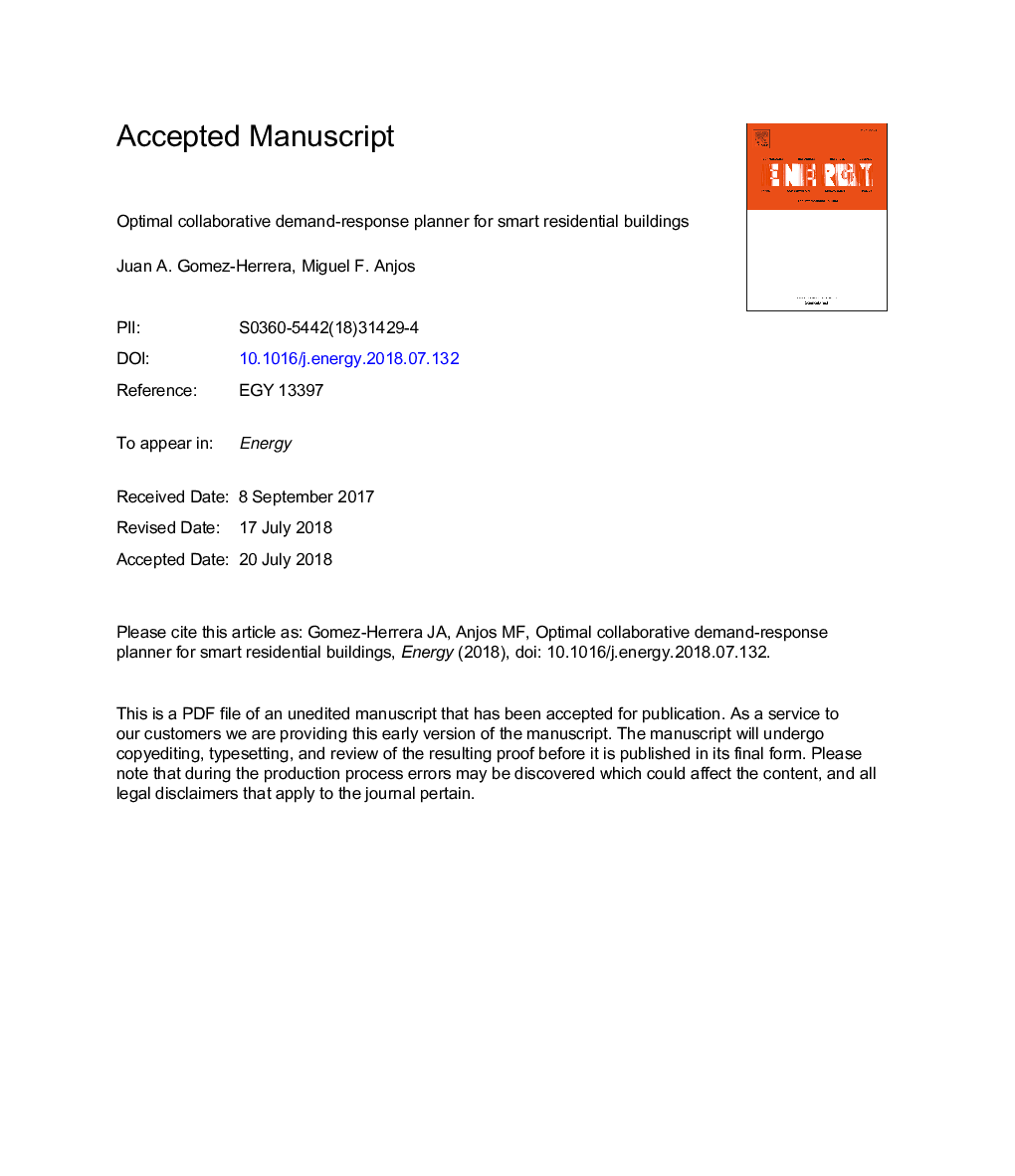| Article ID | Journal | Published Year | Pages | File Type |
|---|---|---|---|---|
| 8070861 | Energy | 2018 | 14 Pages |
Abstract
This work presents a collaborative scheme for the end-users in a smart building with multiple housing units. This approach determines a day-ahead operational plan that provides demand-response services by taking into account the amount of energy consumed per household, the use of shared storage and solar panels, and the amount of shifted load. We use a biobjective optimization model to trade off total user satisfaction versus total cost of energy consumption. The optimization works in combination with a price structure based on time and level of use that encourages load shifting and benefits the participants. Computational experiments and an extensive sensitivity analysis validate the performance of the proposed approach and help to clarify its strengths, its limits, and the requirements for ensuring the desired outcome.
Keywords
Related Topics
Physical Sciences and Engineering
Energy
Energy (General)
Authors
Juan A. Gomez-Herrera, Miguel F. Anjos,
